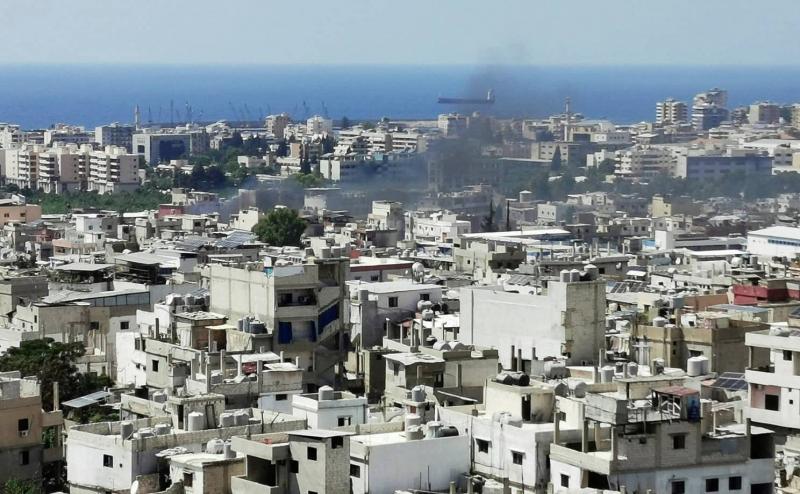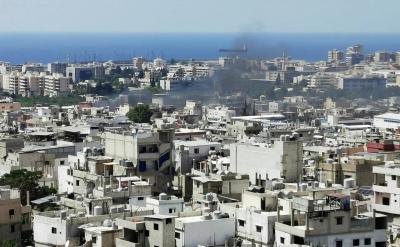After the cautious calm that prevailed this Sunday morning in the Ain al-Hilweh camp, the neighborhoods of the camp witnessed sporadic clashes following violent confrontations that rekindled at night across various battle fronts between the "Fatah" movement on one side and the "Jund al-Sham" and "Muslim Youth" groups on the other. Reports indicate that most initiatives proposed from various sides have failed to be adhered to thus far, and as a Palestinian source states, the situation remains open to all possibilities.
Additionally, overnight, a directive was issued to the "Palestinian National Security" forces to exercise caution against explosives and suicide bombers, tunnels, and secret hideouts under homes, ambushes, and sudden attacks. This marks the first time the "Fatah" movement has spoken of such attacks. The renewed clashes that occurred during the late hours of the night focused on the emergency and lower redevelopment axes, with field sources reporting the use of mortar shells by elements of "Jund al-Sham" and "Muslim Youth."
Moreover, the security forces removed the tents that had been set up to shelter Palestinian displaced persons from the Ain al-Hilweh camp in front of the municipal stadium in Sidon, based on a request from Prime Minister Najib Mikati and Minister of Interior and Municipalities Bassam Mawlawi.
In this context, the former director general of the General Security, Major General Abbas Ibrahim, posted on social media a photo of tents dating back to the "Nakba" of Palestine in 1948, alongside another set up near the Sidon municipal stadium for families displaced from the Ain al-Hilweh camp. He accompanied the photo with the following comment: "The same scene, but the difference is 75 years. The other difference is the change of tools: the first were Israeli, and the second are Palestinian hands," indicating that "this time, the victim is the executioner, and the executioner is the victim." He emphasized that "the shelters for the displaced from Ain al-Hilweh are a first step toward eliminating the right of return." This development regarding the tents has sparked significant controversy as many circles consider them a foundation for a new refugee situation in Lebanon, adding to the existing refugee camps for Palestinians and Syrians.




